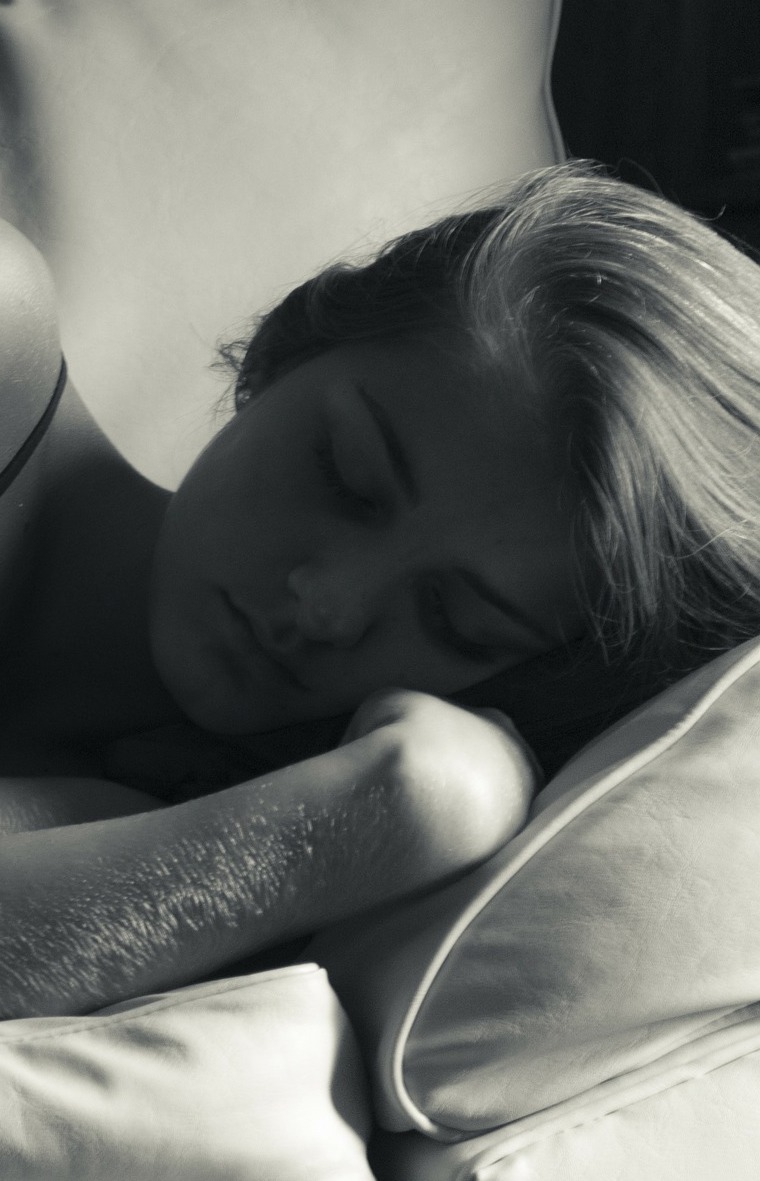“I’m beyond tired. I’m exhausted. But – I can’t sleep!”
Recognize that feeling?
I’ve known that feeling, and I’ve heard that sentiment, over and over. The question is, why can’t you sleep, when you so obviously need rest?
When I was in Chinese Medicine school, some of my overworked classmates and I once shared (complained about?) how sleepy we were. Our herbal medicine professor chided us never to resent our sleepiness, because that was something many people wished they could have.
Honestly, it was not that helpful to hear, when we just wanted less work and more rest. But now, a decade, two kids, and thousands of patients later, I understand what he meant.
It’s easy to get tired. But sleepy isn’t necessarily easy. To be able to slip into a deep, restorative sleep is nothing to take for granted.
Traditional Chinese Medicine has centuries of wisdom about what it takes to be able to fall asleep, stay asleep, and wake rested. Here are the three the three types of insomnia I see most often, plus three safe, empowering tools that can help with each: a lifestyle suggestion, an herbal tea, and self-acupressure massage.
#1: Liver-Network Qi Stagnation
Is this me?
- I have trouble falling asleep when I first go to bed
- My dreams wake me up
- My sleep troubles are worse when I’m stressed
- I tend to wake up between 1-3 a.m., and then lie awake
- (Note that this is the “true” 1-3 a.m. That’s the 2-hour window that begins an hour after “true” midnight, the midpoint between sunset and sunrise. Depending on where you are in your geographical time zone and whether it’s Daylight Savings Time, this time might be different on your clock.)
- I have shoulder tension and get temporal headaches
- I tend to have PMS with breast tenderness and irritability
Yes! That’s me! What can I do?
Lifestyle suggestion: Take a walk.
No, really. That may sound too simple. Or you’re thinking, “I’m already on my feet all day.” But don’t write this one off. When you have Liver Qi stagnation, really taking a walk – striding along with your arms swinging, not carrying anything, looking out in the distance in the direction you’re headed, taking slow, full breaths – is healing for your Liver network.
Try to take your walk as early in the day as you can, because morning is the “springtime” of the day, when the Liver network is most ready to get going.
Herbal tea: Skullcap and/or Lemon Balm. You could also consider Dandelion Root or Mint tea in the morning.
Self-acupressure: In the morning, massage Liver 3. Before bed, massage Liver 14, Lung 1 and Kidney 1.
If you’re awake in the middle of the night, massage Liver 14, Lung 1 and Kidney 1 again. This simple strategy can make all the difference for this type of insomnia!
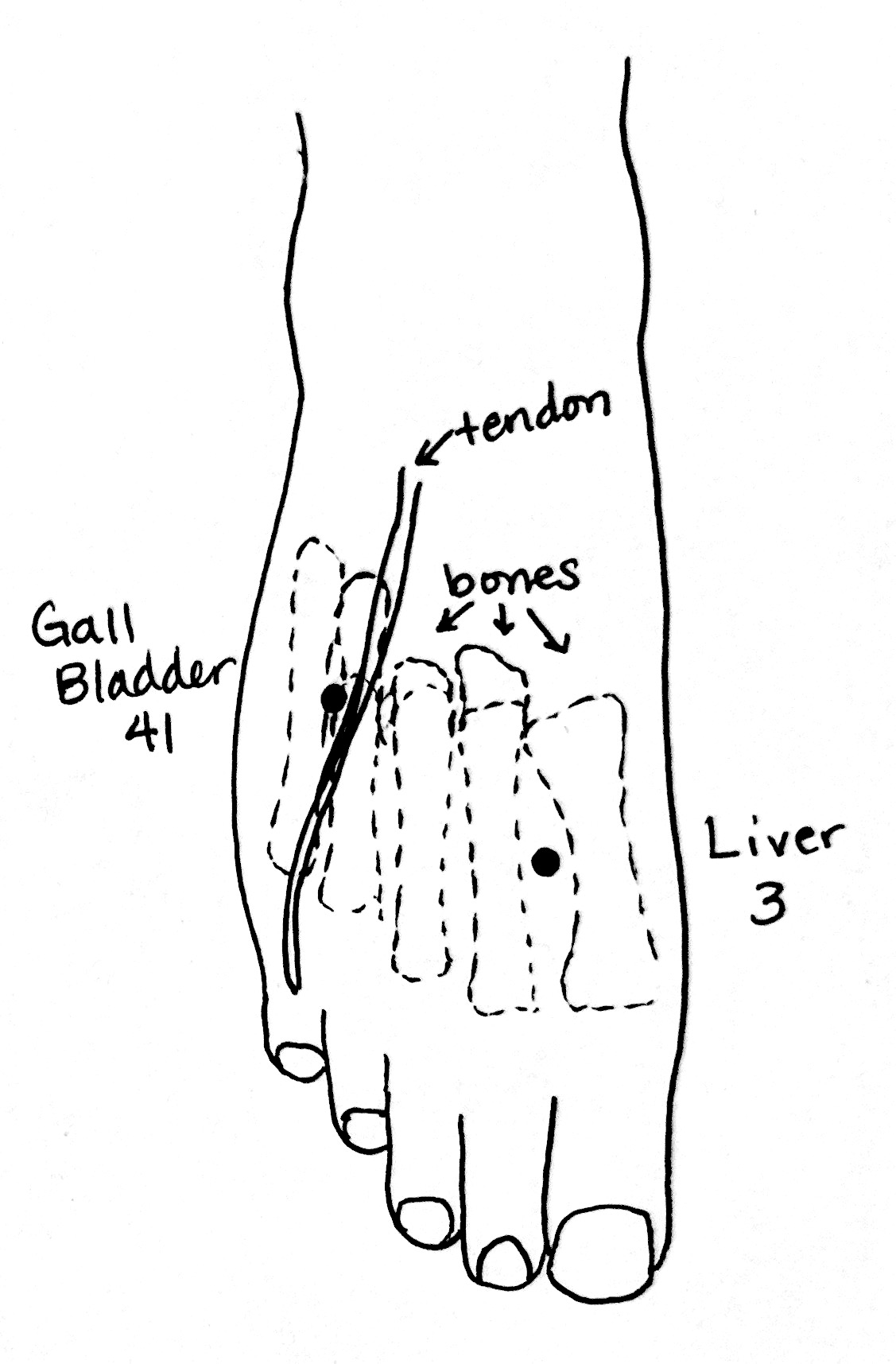

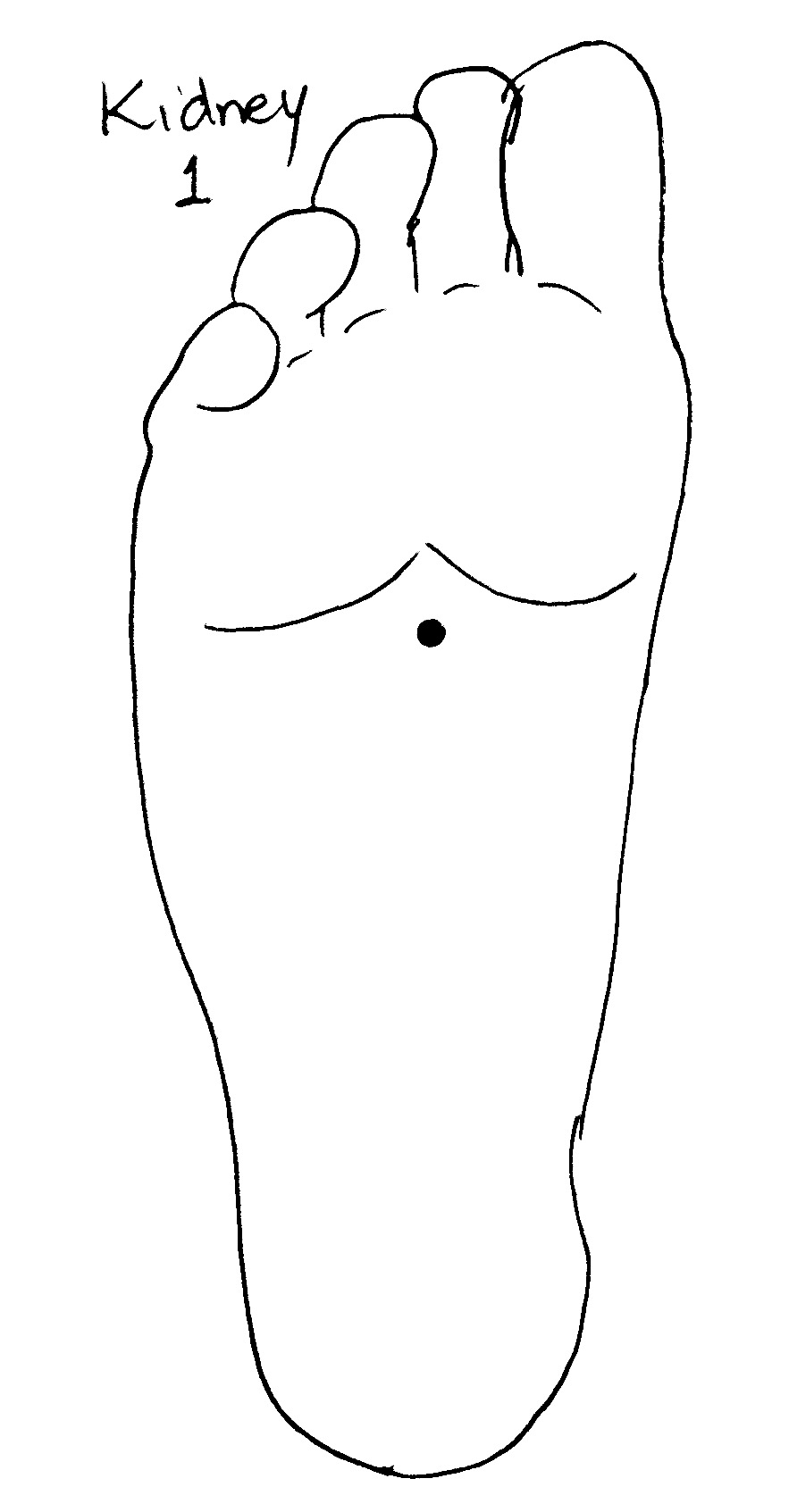
#2: Blood and Yin Deficiency
Is this me?
- I have trouble falling asleep, and then I wake up frequently during the night
- My sleep is fitful and often full of dreams
- I wake up too early, before I’m rested, and can’t get back to sleep
- I feel forgetful
- My eyes get dry and sometimes sore
- I wake up with a dry throat and feel thirsty
- I tend to get hot at night, maybe even have night sweats
- My periods are heavy and I feel exhausted during and after them…
- OR my periods tend to be very light or irregular
This one’s me! What might help?
Lifestyle suggestion: Eat some beets! Also fill your plate up with leafy greens, black beans, and high quality red meat. Because this is likely related to what we call in Chinese Medicine “Blood Deficiency,” foods that build Blood will be helpful. (See this post for more about Blood deficiency.)
Herbal tea: Lemon Balm, Skullcap, Chamomile, and/or Lavender all will probably feel lovely and helpful for you.
Additionally, one of the best Chinese herbs to get to the root of this issue is called Suan Zao Ren, or Zizyphus. Reach out to your local Chinese Medicine practitioner about how to take this herb in a traditional formula for optimal results and safety.
I think I see this type of insomnia more often than statistics would predict, because I work with so many women who are postpartum, breastfeeding, or perimenopausal. In the clinic, I always use herbal medicine for this type of insomnia.
Self-acupressure: Massage the points Anmian and Kidney 1 before bed. See the illustration of Kidney 1 above, and the image of Anmian below.
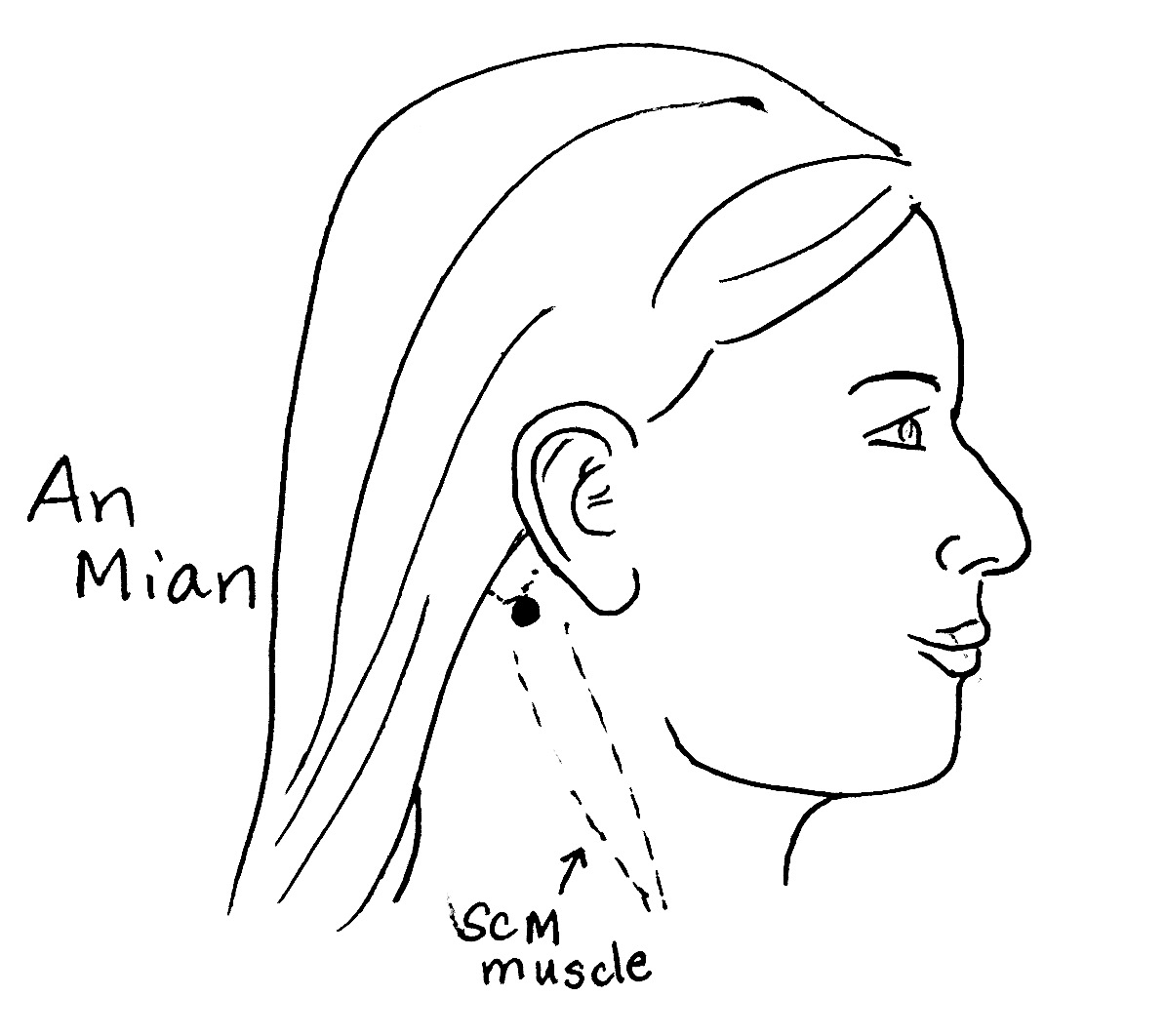
#3: Restless Heart Fire
Is this me?
- I don’t just have trouble falling asleep, I have trouble even calming down and relaxing
- I feel restless, agitated, or anxious
- Sometimes I feel my heart fluttering or beating fast
- My mind is often racing, and I tend to talk faster than other people
Yep, I recognize this one. What can I do?
Lifestyle suggestion: Cut out (or way down on) your intake of stimulants. This means coffee, chocolate, yerba mate, black or green tea, and refined sugar.
If you feel that you need to drink caffeine or you’re not ready to quit sugar, make sure you have those only in the morning.
Herbal tea: Chamomile and Passionflower
Self-acupressure: Use self-massage on Pericardium 6 and 7, and Kidney 1. You can massage these points before bed, or any time during the day that you’d like help shifting into a more calm state.
For even greater benefit, massage these points with a little Lavender essential oil (a few drops diluted in a carrier, like olive oil or lotion).
See the image for Kidney 1 above, and below for where to find Pericardium 6 and 7.
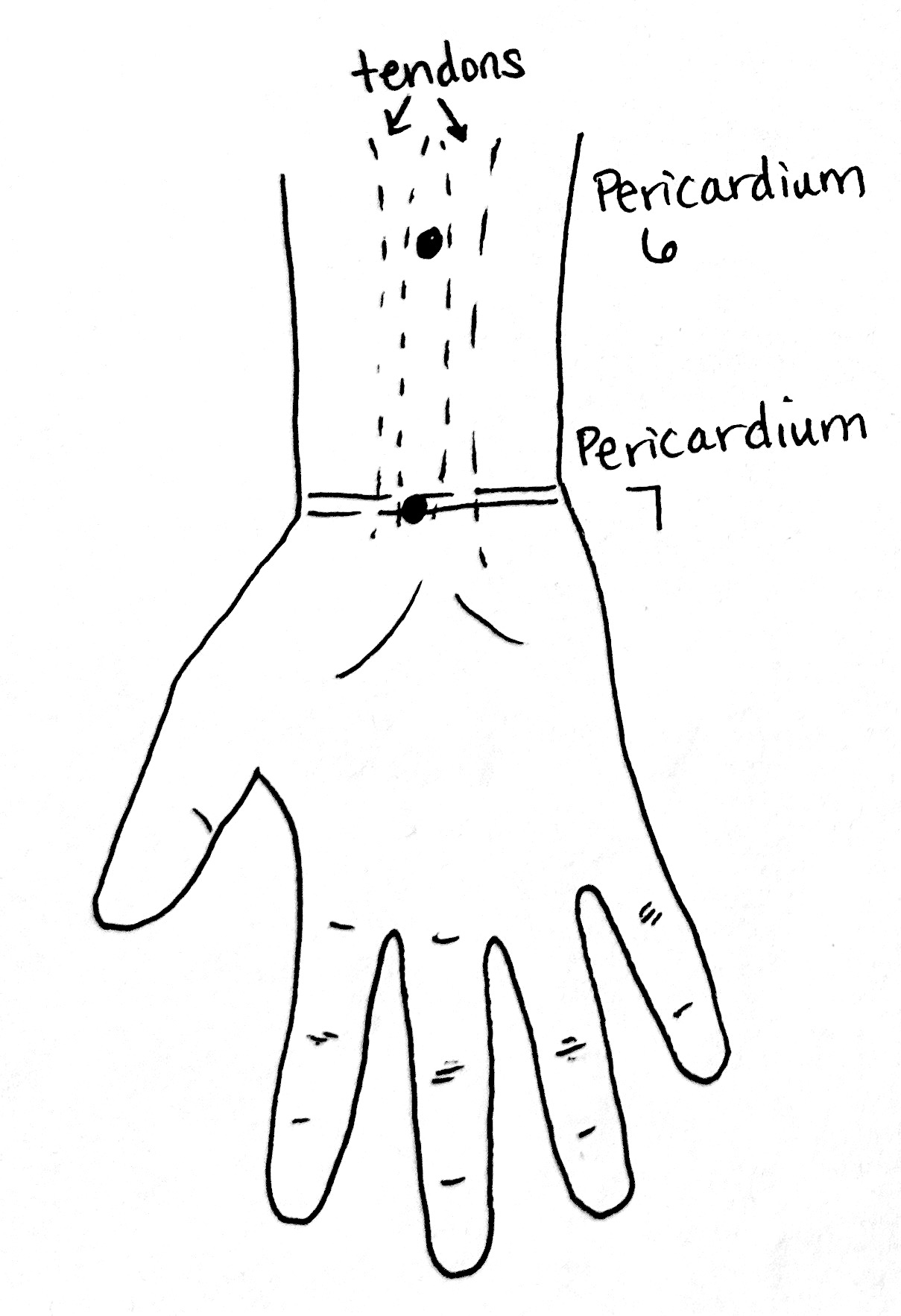
As you give these approaches a try, keep in mind that your body and mind are absolutely capable of getting good sleep. You can get back into balance so that you can fall asleep, stay asleep for as many hours as you need, and wake up ready for the day. You may find relief easily and quickly with these suggestions and other good “sleep hygiene,” or it may take persistence and experimentation. It is possible, though, and it is worth it.
Originally published on healgrowthriveflow.com.


